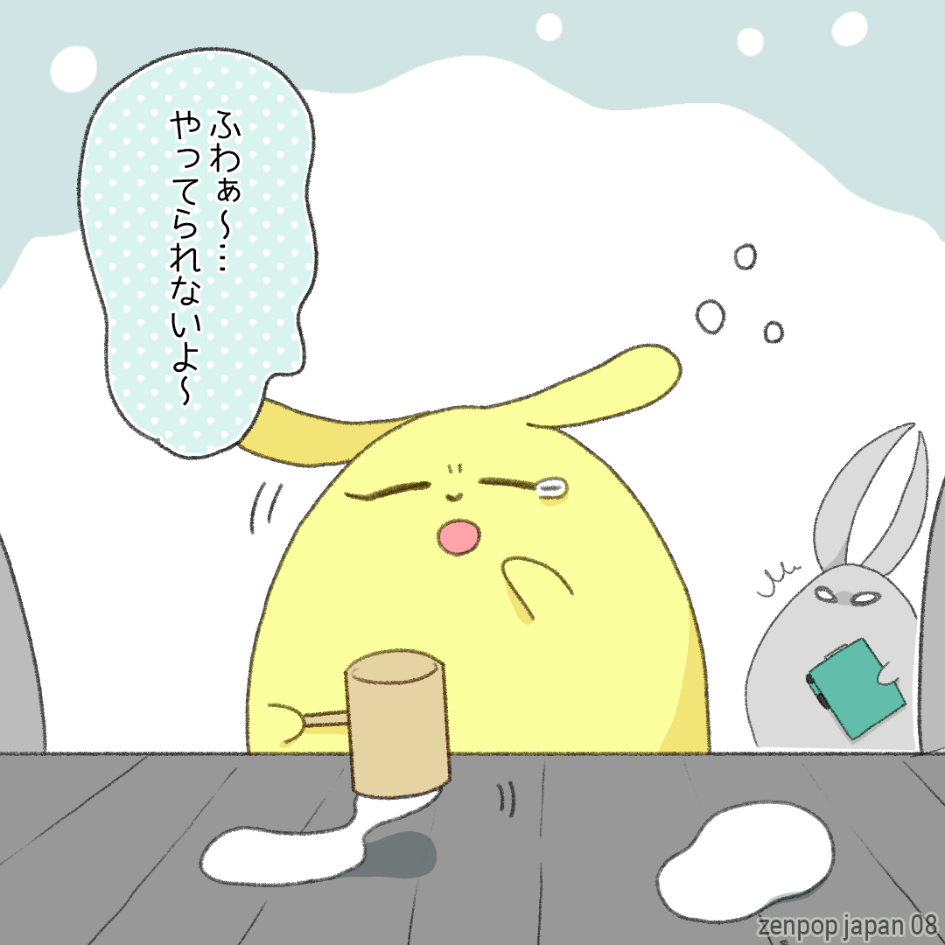Welcome to part 6 of our Japanese lessons with ZenPop's mascot Luna. In this series, we teach you simple Japanese phrases using a frame from ZenPop’s original manga, FULL MOON MAGIC. The manga is drawn by a talented Japanese manga artist so it is currently only available in Japanese, but we have provided translations in English to help those who do not understand Japanese to read and enjoy Luna's adventures on Earth! Read it for free on Instagram here.
Let's get started with Lesson 6!
Yawn ~
I can't go on like this ~

ふわぁ ~
Fuwa ~
やってられないよ ~
Yatterarenai yo ~
ふわぁ (fuwa)
In manga, it is popular for artists to spell out sound effects. This is similar to onomatopeia in English, where a loud crash might be accompanied by the word "BANG" to emphasize it. Here, fuwa is used to express Luna yawning. Remember that ふわぁ just mimics sound, it cannot be used as a verb or noun (it does not mean yawning/yawn). The noun for yawn is あくび (akubi).
やってられないよ (yatterarenai yo)
Wow, that’s a difficult one! Let’s try to divide it into several parts...
やって (yatte)・られ (rare)・ない (nai)・よ (yo).
In general, this phrase is used to express being tired of something. Roughly translated, it means “I can’t go on like this”. It consists of the main verb + modal verb + negation + emphasizing particle.

When we break it down:
- やって (yatte), from the verb やる (yaru). It has plenty of meanings, such as "move", "make", "do", but in this context, it means "go on"
- られ (rare) is from a particle -られる (-rareru) in Japanese, which describes an ability, and thus becomes the modal verb “can” in English.
- ない (nai) is a negation particle, so it means “not”.
- よ (yo) is used to emphasize an expression. It does not have a proper translation in English, though sometimes, people translate it as "you know".
よ (yo) is one of the ending particles in the Japanese language. Ending particles are used to indicate the narrator’s assumption, intention, or other subtle nuances. There is no equivalent expression or English translation for it.
Luna must be really tired of making that mochi…
Let’s review!
ふわぁ ~
Fuwa ~
Yawn ~
やってられないよ ~
Yatterarenai yo ~
I can’t go on like this ~
That’s all for today! We hope you will join us for future lessons of Japanese with Luna as well! Please continue to read the FULL MOON MAGIC manga, which is still ongoing!
Previous lessons:
Tell us about your progress in learning Japanese!


